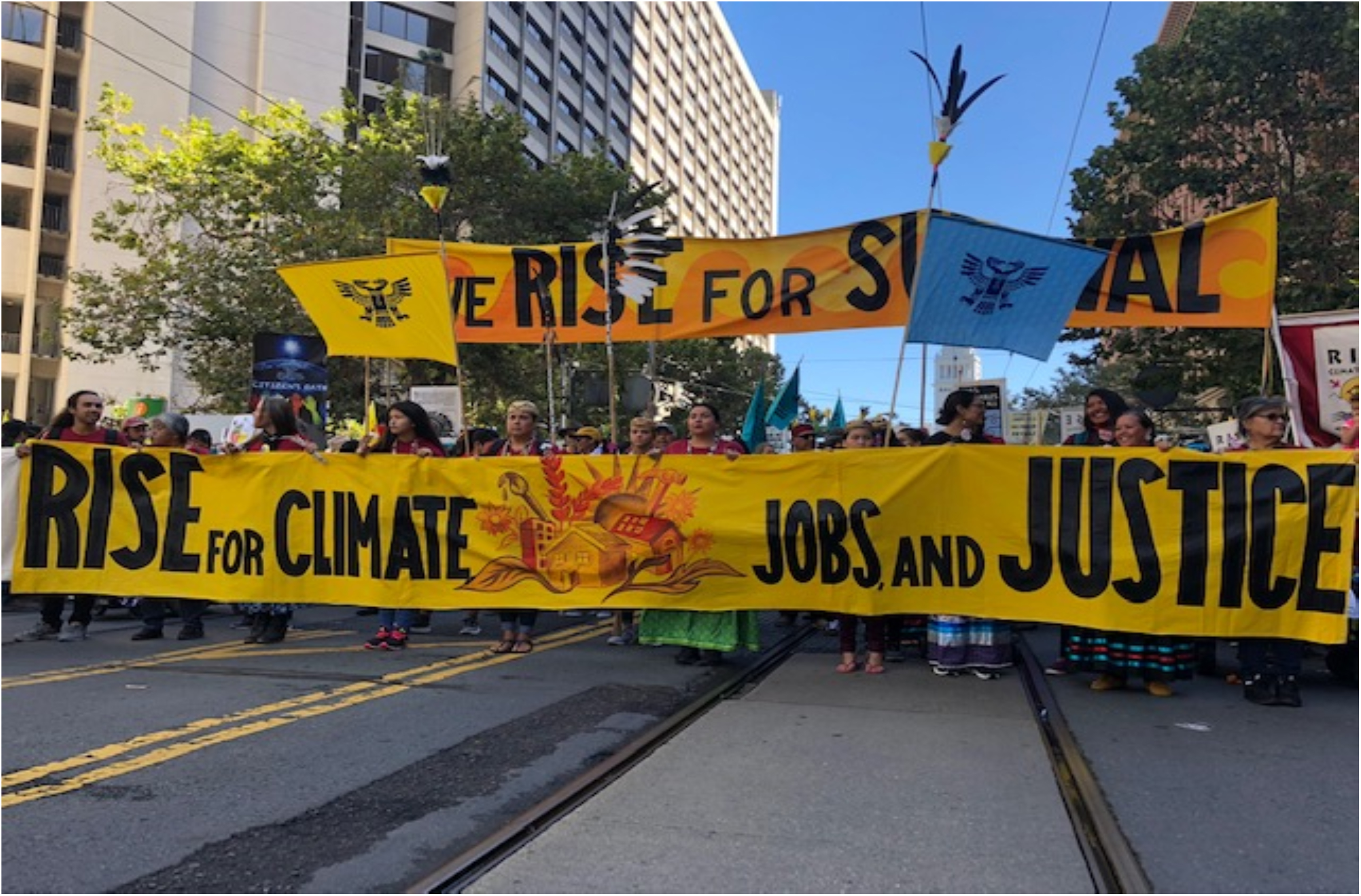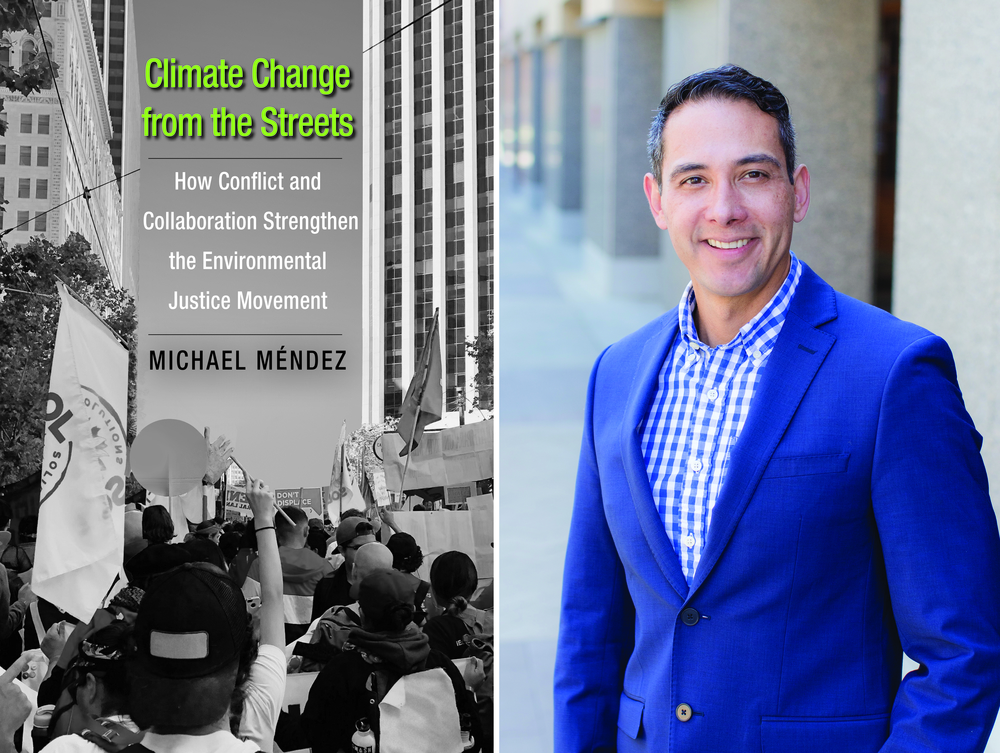Climate Justice for the Most Vulnerable
-
-
Slice of MIT
Filed Under
Recommended

All politics, the saying goes, are local. But climate change politics, for most, are strictly global. Michael Méndez MCP ’03 thinks this needs to change. “There is a strong consensus that we need to take action against climate change,” says Méndez, assistant professor of environmental planning and policy at the University of California at Irvine. “But most of that action is focused on reducing global greenhouse gases from fossil fuel combustion. Few people look at the damage fossil fuel facilities have on the communities near them. And even fewer stop to ask which people or communities should have a voice in deciding how these facilities should reduce their pollution.”
Méndez makes a strong case for climate justice in his newly published book, Climate Change from the Streets: How Conflict and Collaboration Strengthen the Environmental Justice Movement (Yale University Press, 2020). The book uses a decade’s worth of environmental research, activism, and policy in California as proxy for a more inclusive approach to protecting the planet and all who live on it. “California has a diverse population, with high levels of wealth and inequality,” says Méndez, born and raised in a Latino immigrant community in the state’s San Fernando Valley. “We have agriculture, oil production, and major cities. We’re on the frontlines of climate change, with wildfires, heat waves, and drought. And we’ve been a leader in fighting for clean air and water for decades.”

Méndez’s early life set him on a path to fight for environmental justice. Growing up in a Mexican American family in the communities of Pacoima and Lakeview Terrace, just downwind from the Lopez Canyon Landfill, he wondered why the tony suburbs where he and his siblings were voluntarily bused to school had open green spaces, swimming pools, and cleaner air. He worked two jobs—one at the Los Angeles County Metropolitan Transportation Authority, and a second at his father’s bicycle shop—while studying urban planning at California State University at Northridge. “That bike shop, the only Latino-owned bike shop in the valley, was a vital, affordable, and sustainable outlet for so many people who used their bikes to get to work,” he recalls.
The people making these types of policy decisions often didn’t have an environmental justice background. And they didn’t grow up in places like Pacoima.
After college, Méndez enrolled in a master’s program at MIT’s Department of Urban Studies and Planning, where he helped popularize the term Latino Urbanism. Newly elected California Assembly member Cindy Montanez hired him as senior consultant over the phone as he was walking down the stairs at 77 Massachusetts Avenue moments after his thesis defense in the spring of 2003. “She knew I’d grown up in the Latino side of the San Fernando Valley,” he says. “And she wanted someone with the environmental planning skill set that MIT afforded me.”
Méndez spent the next decade in California environmental politics as senior legislative aide, lobbyist, and gubernatorial appointee. He left that field to pursue a PhD in regional planning at the University of California, Berkeley, completing the degree in 2015. He taught for three years at Yale University before joining the faculty at UC Irvine last fall. “I returned to academia because I wanted to have a broader platform for my ideas,” he says. “And I wanted to train the next generation of environmental activists. Until recently, the field was primarily white and male. There were very few people of color. I wanted to be that role model.”
Color—and not just class—is a primary factor in Méndez’s analysis. In Climate Change from the Streets, he cites multiple studies that show that, even controlling for income, communities of color have a higher proportion of polluting industries than their same-class counterparts. These industries have a strong adverse impact on local health. “The people making these types of policy decisions often didn’t have an environmental justice background,” he says. “And they didn’t grow up in places like Pacoima. They didn’t see the environmental racism, or the need to aggressively address local pollution in these communities.”
In order to achieve true environmental justice, Méndez argues, activists and policymakers must work simultaneously on multiple scales: local, regional, national, and global. His book cites examples of community activists staging local protests; environmental groups lobbying legislators at the state capital in Sacramento; and indigenous rights groups seeking protection at the United Nations from pollution and displacement.
Méndez’s “multi-scalar” strategy for environmental justice does not minimize the urgent need to reduce global carbon emissions. Rather, it seeks to elevate the concerns of communities most likely to suffer the consequences of careless or discriminatory policies. “All of us are vulnerable in this climate crisis,” he observes. “But some of us are more vulnerable than others.”
All images courtesy of Michael Méndez.







